Speeches Shim
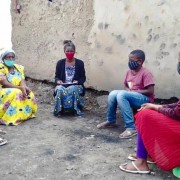
In 2017, Community Case Worker volunteer Angela Kweka enrolled Alifonsina’s family into the USAID Kizazi Kipya activity. Angela assesses the household’s needs and develops care plans with Alifonsina to better support her family and meet the health and education needs of her grandchildren.
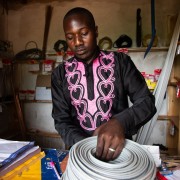
Michael Mgongolwa, a resident of Ndolela village in rural Iringa, dreamed of transitioning from a subsistence farmer to a businessman, but wasn’t aware of any entrepreneurship opportunities in his community. Fortunately, he was introduced to the Feed the Future Tanzania Advancing Youth activity and enrolled in entrepreneurship training. He was able to develop a market survey plan to help him identify business opportunities he could engage in. “With readily available electricity in the area, I realized that many construction projects were taking place. This informed my decision to establish an electrical hardware store that would provide merchandise used in construction. I have built a good network with construction builders in the area who order materials in bulk from my store” says Michael.
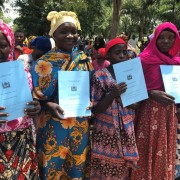
In Tanzania, conflicts between pastoralists and crop farmers frequently occur, although most go unreported. Land-related conflicts often lead to unsustainable exploitation of natural resources, destruction of farms, crops, and houses, theft of livestock, and even loss of life. One of the worst conflicts between pastoralists and farmers occurred in December 2000 in Morogoro Region when 38 people were killed. Women and children often suffer most when conflicts occur. Tanzania’s ability to attain sustainable development goals like poverty reduction, gender equality, and climate action are compromised when conflicts develop over land resources. Furthermore, in communities with land conflicts, households dependent on subsistence agriculture are pushed towards more unsustainable activities such as charcoal production and short-cycle crop practices which can degrade soil and water resources. Worsening stresses brought on by floods, droughts, and population growth further reduces the resilience of communities and households.
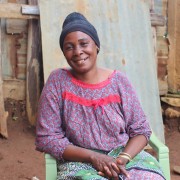
Moshi Chacha (47) is a widow living in Kubitere Village, Tarime District, Mara Region. Her late husband left Moshi with six children to look after and without a reliable source of income. A turning point in Moshi’s life came in 2018, when she joined a USAID Waache Wasome (“Let them Learn”) Livelihood Improvement for Mothers and Caregivers of Adolescents (LIMCA) group. LIMCA is a community-based savings and lending platform that supports socio-economic change at the household level. The group’s interventions help put families in a better position to meet their daily needs and support the continued education of their daughters and sons.
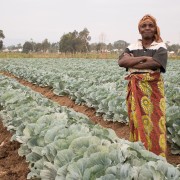
Feed the Future Tanzania Mboga na Matunda (“Vegetables and Fruits”) increases the productivity of horticulture activities that add value to product, while integrating women and youth. Through collaboration with dozens of private sector partners, the activity stimulates women’s engagement in horticulture by training them in crop production, technologies, markets, access to inputs, and nutrition. Currently, of the over 50,000 individuals trained by the activity, 47 percent are women.

Comment
Make a general inquiry or suggest an improvement.